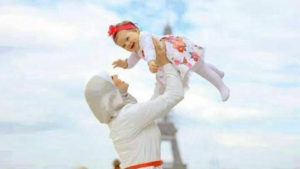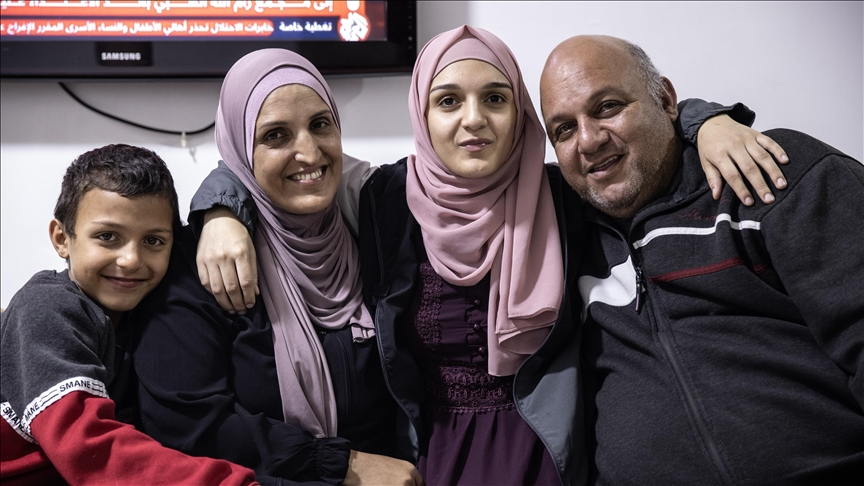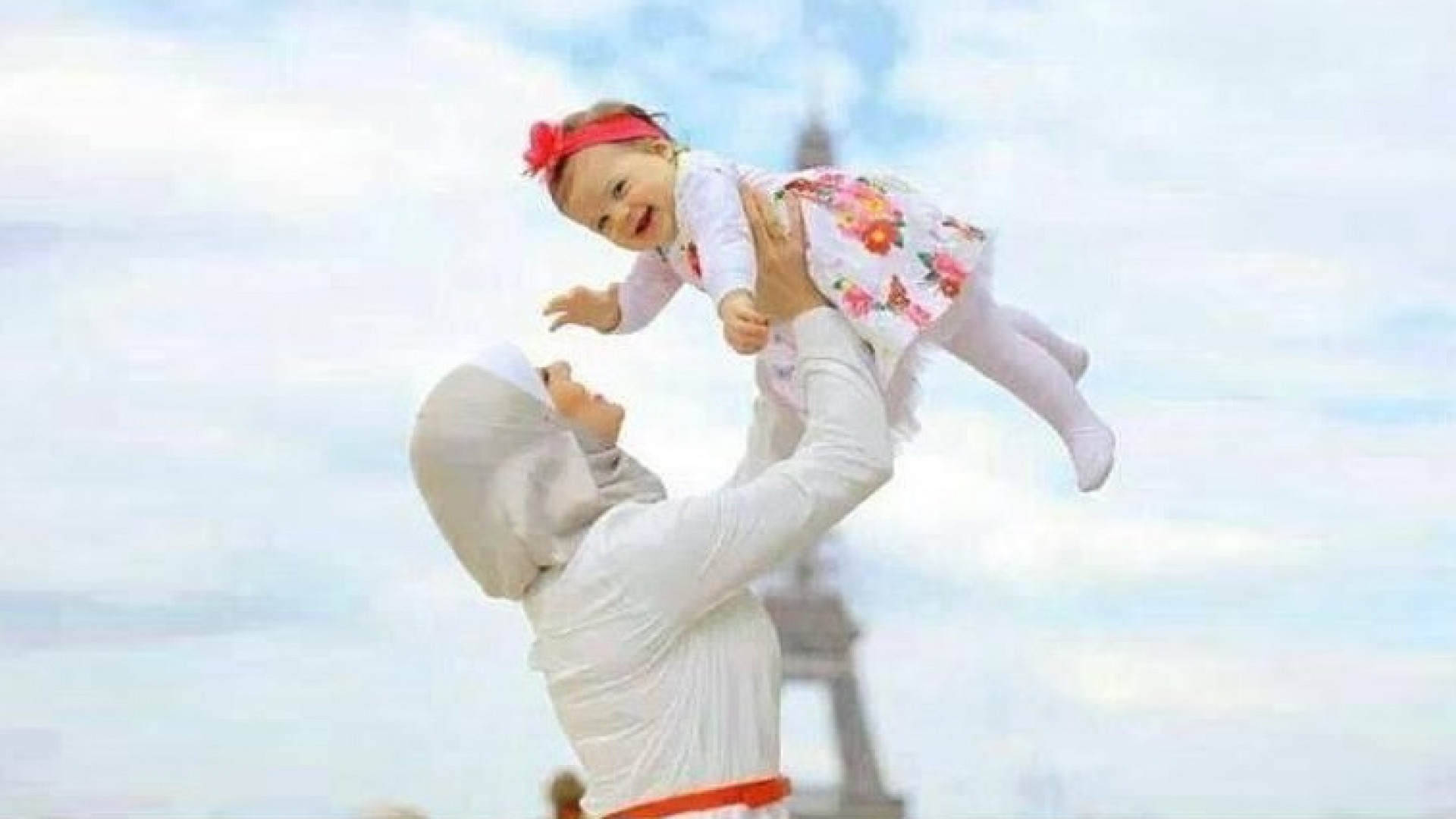Merita Boroci Coordinator of the Madrasa of Gjilan, Merita Boroci Coordinator of the Madrasa of Gjilan

Children are a gift from God. A child needs a lot of care, "Marriage is like a fortress that protects a person from a messy life." Another goal of the family is to provide psychological balance and spiritual support, and above all for love, and especially for the love of parents, respectively the mother. The child understands the expression of politeness from infancy. Mothers are the first and best example during the childhood of girls, whereas fathers are an example for sons.
From the moment of birth, every baby wants to bond with its mother. This is the purpose of her movements immediately after birth. For many months, the mother plays an extremely important role in her life (the baby), almost everything depends on it. In this situation, the beginnings of community life skills are developed. The mother provides the infant with its first connections with another human being, and first interest in someone else. It is the first bridge to life in the community. A baby who cannot bond with her mother, or any other person, fundi and saj(of the baby) it would be inevitable.(1)
love, Respect, tolerance and understanding shown by the mother, father and family members, in the child it affects the development of the feeling of compassion and conscience. If children are kept away from negative and scary phenomena, if they grow up seeing positive examples, then they will be filled with the feeling of love and compassion.
The child's behavior towards animals and the surrounding environment should be carefully observed.(2)
Children who seem more nervous and rough in childhood, who grow up in a family with frequent problems or conflicts (especially between parents), even during life in the future there are more opportunities to become more aggressive or even criminals. WHEREAS, those children who grow up with gentle manners with love, care and in a family environment, happy and loving, they are more likely to become more loving and tolerant in the future.
It is not for nothing that it is said that children are a reflection of the family. Children are greatly influenced by the environment in which they grow up, From the family, and mainly by their parents. For, these factors mostly affect the formation of the child.
Mother's love protects from stress
Newer research shows interesting results about how early childhood can affect an adult's life. Experience during infancy, events that are not remembered, etc., are reflected in their lives and trigger certain reactions in the growth phase. According to a research, children who have had a lot of love from their mother, care and attention, when they grow up they will feel more secure in interpersonal relationships.
also, they will also be better found in social contacts, as well as in life's difficulties. Research has revealed that a mother's love is very important, and parental responsibility is greater than previously thought.(3)
For, why does the mother's behavior and love affect the child so much?
The secret lies in the love hormone. A mother's love for her child cannot be described in words: it's so big, so complex and so beautiful. There are many who support this thesis. Actually, this great and special love has been the subject of a number of recent scientific studies. Among the factors that bind so much mother and child, apparently, there is a so-called "love hormone".”, oxytocin. It is this hormone that is thought to be produced in large quantities after birth, what makes this mother have such a strong love for the newborn. This behavior gives importance to a process that strengthens the bond between the two, even much more than that between father and child. Although the effects of oxytocin on human beings are not fully understood, it appears that these may favor a stronger bond between mother and child. STILL, what is clear has to do with the fact that this substance plays several important roles. Among the functions are two most important, exercised during pregnancy or immediately after birth, and that they are: stimulation of labor pains, and breastfeeding the baby.
Children are mothers' medicine
For some it is a choice, to others it is an ugly joke, so that they never squeeze their offspring in the chest. According to a large number of researches, made mainly in years 2008 AND 2009, the number of women who do not want to have children or cannot give birth is less than the number of women who do, and especially those who have two to four children. From the studies it was seen that, compared to those women who become mothers, women who do not give birth live worse, have a shorter lifespan, and are more prone to be affected by a large number of diseases, especially the psychological ones. They were also seen to suffer terribly socially and psychologically, that is, the fact that they could not become mothers, especially as they got older. so, gynecologist Luis Adams, of the University of Florida in the USA, explains: “We must never forget that childbirth is one of the most important moments in a woman's life, it is the moment when her life changes completely. We must also not forget that a woman is born to have her offspring. All women who breastfeed their children are less likely to get breast cancer., while uterine cancer has a higher percentage to develop in women who have not given birth, because some parts that should have become active after birth do not have their function. Mothers are better able to remove the stress caused by the passing of years and in the period of menopause, which very often lead to depression”, he concludes.(4)
Islamic care of children
Islam not only obliged parents to provide excellent education and prepare their children for a more fruitful life., but he obliged them to take care even before their birth. Islam obliges the man to carefully choose a noble believer as his future wife, that can be a good mother and can take care of children successfully, home and marital obligations. It orders the parent to protect the children, to educate and maintain them in the best way. also, I also warn the children that they should not have any objection regarding maintenance, as well as not having any eventual belief that he (print) it is he who supplies them!(5)
The education of the child is one of the main life goals of every parent, understood after the goals, obligations and issues of worshiping the Creator.
For the child, the parent wants the best possible, so that his child in the future will be the best person in all aspects. For, how hard parents work to achieve this, it's another matter. Although the education of children is of great importance, a large number of parents neglect this issue and do not pay due attention and care. These parents neglect their children because “they don't have time" (the cause of the race to get rich, prestige, respect in society and other concerns) talk and socialize with their children, so, as a result, parents face their children's disobedience and start complaining about them. Unfortunately, they are not at all aware that they are the cause of their children's condition. Maybe they meet all their material needs, but they fail to educate them as they want. Often, to reach their goals, parents use intimidation methods against young children. In cases where the child does not ?e, I don't eat, or disobeys parents, adults immediately use the famous expressions of intimidation to bring discipline to the place. so, children are often afraid of: darkness, cuddly, thunderbolt, doctor, police, thief, as well as other forms of fear, which for some parents are educational tools. After a certain time the child may start to fear things, phenomena and individuals that should not be feared, on the contrary. Some of these fears disappear with growth, and others continue to be part of the individual's life even in adulthood. The main problem, according to psychologists, is that children can often remain hostage to these fears, closing in on himself or experiencing normal situations too hard. Excessive fear prevents the child's personality from taking any action, and the assay does not affect its dynamic development. With a word, fear lowers children's confidence and skills, to the extent that children with an overdose of fear may seem emotionally and intellectually retarded. Parents are responsible for many forms of fear in children, because of the examples they set for their children, or from the way of their education. Wise parents should try to allay the sense of fear in children, and instead use other means in improving misbehavior. Another mistake parents make is using physical force as a means of education, which is actually quite the opposite. baby, from the beatings that are inflicted on him, especially from parents, creates an impression of distance and arbitrariness of the parent towards him, which will affect his psychology badly, as well as will be reflected in the age of maturity. The beatings, slaps or blows, as a form of punishment, it teaches children that it is okay to hit others to solve problems, and this may teach them to punish others in the same manner in which they themselves have been punished. For, physical violence should not be seen as an alternative. Another fact that can be encountered very often in some parents is the inequality between children, which indicates an uneducative and unloving behavior for children. Preferring some children over others, not treating everyone equally, distinguish between them,it can cause hostility, resentment, stubbornness, jealousy and breakdown of fraternal ties between children.(6) The best example, which teaches us a lot that differences and unequal treatment of children can cause jealousy, hatred and many other negative phenomena, no doubt it is the example of the prophet Yusuf a.s., who was separated from his father, prophet Yakub a.s.
_______________________
(1) When we wake up from sleep://www.psikologjia.com/?p=127. A chapter selected and translated from ALFRED ADLER's book “Why do we live?” (What we live for).ACCESS 03.05.2015.
(2) When we wake up from sleep://www bebaime.com/keshilla-/ndjenja-e-dhembshurise-tek-femiu. ACCESS 01.05.2015.
(3) When we wake up from sleep://www.bebaime.com/tema/dashuria-e-nenes-mbron-nga-stresi access 01.05.2015.
(4) When we wake up from sleep://www.shqiperia.com/dashuria-nene-femije.7639/ Published: 5 Years ago. Written by: Albanian. 03.05.2015 not 23:40.
(5) Basics of Islamic Pedagogy, Ali Abdull-Halim Mahmud, Publisher Furkan ISM 2013 Skopje P.69.
(6) When we wake up from sleep://www.radioislame.com/index.php?frame_rd=article.php?id= 7030. Rukije Brega. approach, 05.05.2015.
Victory Laha












